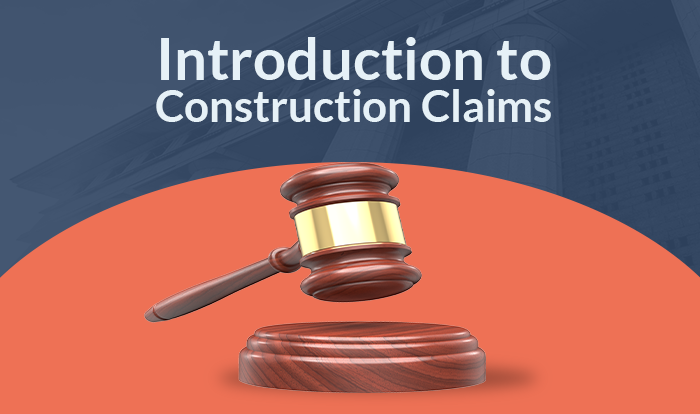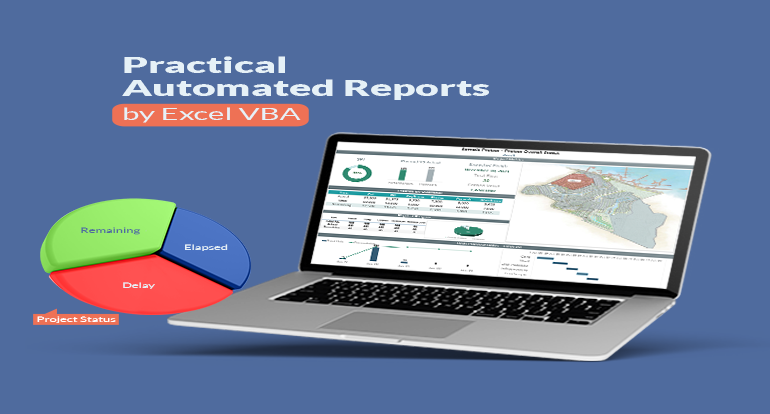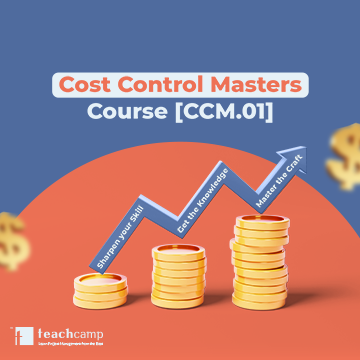
- Understand the concept of forensic planning, Extension of Time (EOT) claims;
- Understand the different references for forensic planning and EOT analysis from different stand points;
- Understand delay definition, types and delay compensability;
- Understand the definition of disruption and its correlation with delay analysis;
- Know the types of schedules in accordance with delay analysis concept;
- Understand the concurrent delay definition, concept and cases;
- Understand the definition of damages and apportionment;
- Understand the classification of the different methods of delay analysis (RP 29, 03 - AACEI) and their correlation with other references;
- Differentiate between prospective and retrospective approaches;
- Understand by practicing the main methods implemented for delay analysis;
- Understand the limitation, advantages and disadvantages of each method; and
- Practice different cases studies.
Basic Knowledge of:
- Planning and Scheduling;
- Primavera P6 (Attendees are kindly requested to have their laptops with Primavera P6).
- Planning Engineers;
- Senior Planning Engineers;
- Planning Managers;
- Delay Analysts;
- Claim Specialist;
- Contract Administrator; and
- Every one who needs to enhance his skills in “Delay Analysis”.
- Recorded Videos. (Available for Six (6) Months after subscription - Subscription renew for additional six months will cost 3 dollars)
- Sessions' Presentation.
- Xers, Excels, Word, pdfs, ...etc.
- Workshops' files.
- Supporting Documents.
| Day | Date | Session no. | Topics |
|---|---|---|---|
| Mon | 23, Sep 2024 | 1 |
|
| Sun | 29, Sep 2024 | 2 |
|
| Sun | 06, Oct 2024 | 3 |
|
| Sun | 13, Oct 2024 | 4 | Prospective Analysis _ Time Impact Analysis (TIA) |
| Sun | 20, Oct 2024 | 5 | Retrospective Analysis Techniques Observational Techniques: - 1. Longest Path Theory and Negative Float 2. MIP 3.1 (As Planned Vs As Built) |
| Sun | 27, Oct 2024 | 6 | Retrospective Analysis Techniques Observational (MIPs 3.2, 3.3, 3.4, and 3.5) |
| Sun | 03, Nov 2024 | 7 | Bonus Session | Practical Real Examples on MIP 3.3 |
| Sun | 10, Nov 2024 | 8 | Retrospective Analysis Techniques Observational and Modeled Analysis (MIPs3.1, 3.2, 3.3, 3.4, 3.5, 3.6, 3.7, 3.8, and 3.9) |
| Sun | 17, Nov 2024 | 9 | Retrospective Analysis Techniques Observational and Modeled Analysis (MIPs3.1, 3.2, 3.3, 3.4, 3.5, 3.6, 3.7, 3.8, and 3.9) |
| Sun | 24, Nov 2024 | 10 | Retrospective Analysis Techniques Observational and Modeled Analysis (MIPs3.1, 3.2, 3.3, 3.4, 3.5, 3.6, 3.7, 3.8, and 3.9) |
| Sun | 01, Dec 2024 | 11 | Recorded Session |
| Sun | 08, Dec 2024 | 12 | What a Delay Analyst Cannot Be Unaware Of (Can be extended for two sessions):-
|
| Sun | 15, Dec 2024 | 13 |
- Introduction
- Forensic planning definition
- Delay Definitions
- Fragnets Definition
- Delay Types
- Delay Analysis Important Terminologies
- Training References
- Delay Analysis Categories
- References
- Measuring Delays
- Project Schedule Types
- Schedule Types in accordance with delay analysis principles (Baseline, As Built and Update)
Prospective Analysis _ Time Impact Analysis (TIA)
Retrospective Analysis Techniques Observational Techniques: -
1. Longest Path Theory and Negative Float
2. MIP 3.1 (As Planned Vs As Built)
Retrospective Analysis Techniques Observational (MIPs 3.2, 3.3, 3.4, and 3.5)
Bonus Session | Practical Real Examples on MIP 3.3
Retrospective Analysis Techniques Observational and Modeled Analysis (MIPs3.1, 3.2, 3.3, 3.4, 3.5, 3.6, 3.7, 3.8, and 3.9)
Retrospective Analysis Techniques Observational and Modeled Analysis (MIPs3.1, 3.2, 3.3, 3.4, 3.5, 3.6, 3.7, 3.8, and 3.9)
Retrospective Analysis Techniques Observational and Modeled Analysis (MIPs3.1, 3.2, 3.3, 3.4, 3.5, 3.6, 3.7, 3.8, and 3.9)
Recorded Session
What a Delay Analyst Cannot Be Unaware Of (Can be extended for two sessions):-
- Disruption claims
- Apportionment concept and methods
- Claim document structure, writing and submission.
- Prolongation cost calculation
Reviews
5
0
4
0
3
0
2
0
1
0
0
0 reviews






